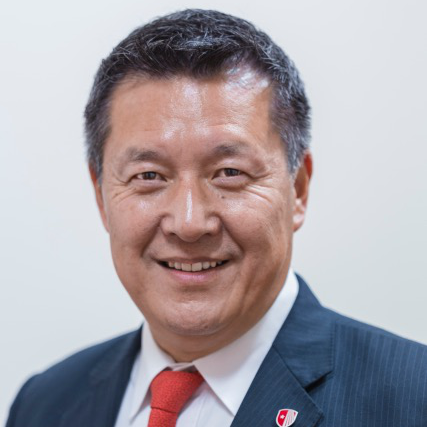
Jun Liu
Founding Director of ELC at Shantou University (2003-2008), Jun Liu is now Vice Provost for Global Affairs, Dean of International Academic Programs and Services, and Professor of Linguistics at Stony Brook University in New York, USA. Liu is the first Asian President of TESOL International (2006-2008) and is a recipient of the James E. Alatis Award of Outstanding Service to TESOL (2016). As Vice President for both TIRF (The International Research Foundation of English Language Education) and TCSOL (Teaching Chinese to Speakers of Other Languages), Liu has published more than 10 books and 100 journal articles and book chapters on intercultural communication and language education. A sought-after speaker, Liu has given more than 100 plenary speeches in over 30 countries.
US higher education is facing challenges in diversifying the international student population due to the increasing number of Chinese students. The enormous population of China, the Chinese belief in American education, and the financial capability of Chinese families mean Chinese students will continue to enroll in American colleges and universities in large numbers. However, this trend has caused much excitement as well as anxiety for university administrators and faculty, as well as American peers. Over the last decade or so, the number of Chinese international students has exceeded more than 30% of all international students in the US. Along with increasing numbers, issues and concerns have been raised about these students’ English abilities, communication skills, and academic integrity. In this talk, Liu will first address four pertinent issues: The complexities and heterogeneity of Chinese students, challenges and opportunities for building intercultural communicative competence, understanding and breaking Chinese silence in US classrooms, and the life cycle of Chinese students. While language is always a challenge for Chinese students as they have learned English in a non-English speaking environment, the intercultural communicative competence that encompasses linguistic, sociolinguistic, discourse, and strategic competences as a whole is what they are lacking. In particular, the sociolinguistic and discourse competences fundamentally impact these students’ acculturation processes and their ability to socialize beyond their comfort zone. Many Chinese students identify their English proficiency as their biggest roadblock to classroom participation. This lack of language competence has a negative impact on Chinese students’ self-esteem, influences their decision-making, and ultimately restricts their class participation. Is ELT practice responsible for these challenges? If so, how can we alter or improve our practices to mitigate potential challenges once Chinese students study in an English-speaking environment? Liu will offer insights to these questions while making recommendations for higher education, university administration, and the ELT profession in China.